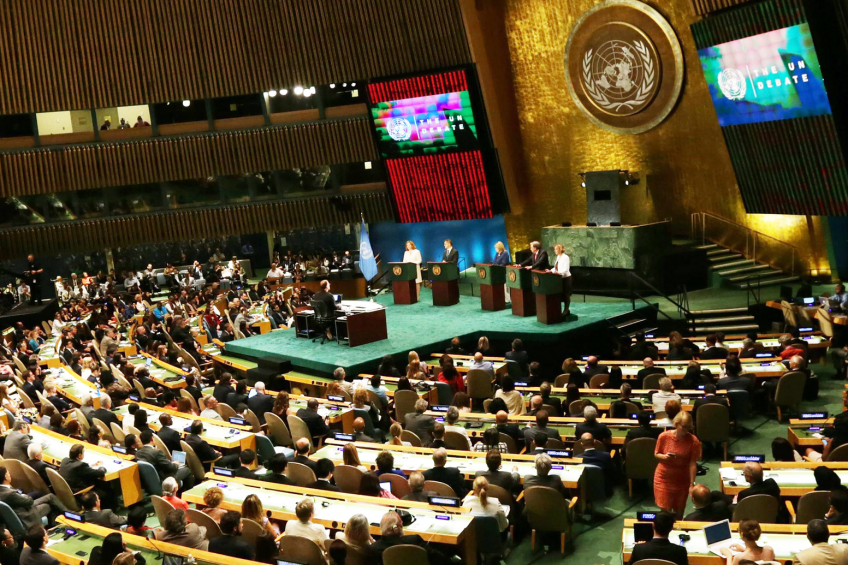IPC joins UN discussion on antimicrobial resistance

“Anti-microbial resistance must be addressed at the highest political level and all sectors must work together and make commitments to address the problem,” said Juan José Gómez Camacho, Mexico’s ambassador to the United Nations in a high-level discussion last week.
Dr Randall Singer, one of the preeminent academic experts on anti-microbial resistance (AMR) in animal agriculture, represented the International Poultry Council at the discussion on anti-microbial resistance at the headquarters of the United Nations in New York City.
Gómez Camacho invited the International Poultry Council (IPC) to take part in the meeting between the private sector and UN delegates. Delegates met earlier with representatives of several non-governmental organisations (NGOs) that are critical of the use of antibiotics in farm animals. The informal discussions with diverse stakeholders are intended to enable delegates to develop broad goals that countries can address individually.
Preparations for AMR summit
Gómez Camacho said he hoped last week’s discussion with the private sector would provide balance to the AMR discussion in the UN as it prepares for an AMR summit in September. That’s when heads of state from UN member countries will gather to begin work on a global AMR strategy.
Singer, who is professor of epidemiology at the College of Veterinary Medicine at the University of Minnesota, said that IPC’s presence in the discussions is crucial. “In hosting these informal discussions, the idea is (for the UN) to get input from different sectors and then draft short documents that can help frame the September meeting,” he wrote in his summary.
Representatives of several livestock organisations and pharmaceutical companies that manufacture anti-microbial medications for use in animal agriculture also took part in the meeting with UN delegates from Mexico, the US, Canada, Australia, the UK, Peru, Cyprus, the Netherlands, Indonesia, China, Brazil, Chile, Ecuador, Zambia, Switzerland, Senegal and South Africa.
Also interesting:
Maintaining intestinal health of chickens
Inaccuracies surround anti-microbial resistance
Singer said he was able to address several inaccuracies about AMR that activists had raised during the earlier meeting with NGOs, such as the oft-repeated statement that 80% of all antibiotics used in the US are given to farm animals. “Several of us tried to explain why this is a misleading, inaccurate and unhelpful way to think about the problem,” he said.
Also, Singer spoke separately with some of the delegates to explain that many of the common claims about AMR made by activists and repeated in the news media have little or no basis in science.
The UN will compile the comments made by all sides and will circulate the document in advance of the September AMR summit. The IPC, meanwhile, will devote most of its next conference to the topic of AMR. The meeting is set for Oct. 12-14 in the Portuguese city of Cascais.













